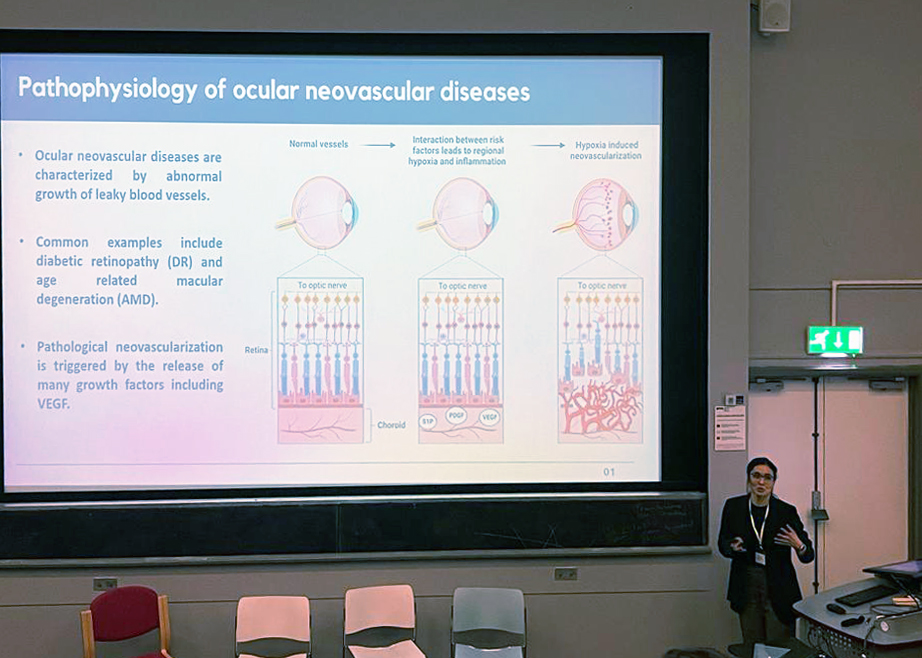Researchers Discover Potential Treatment for Macular Degeneration and Diabetic Retinopathy

Rasha Alshaikh wins best oral prize presentation at the June meeting of the United Kingdom & Ireland Controlled Release Society (UKICRS) in London
More than 200 million people worldwide are vision impaired or blind, often as a consequence of macular degeneration and diabetic retinopathy. Vascular Endothelial Growth Factor (VEGF) plays a key role in the development of retinal diseases, as excess VEGF leads to the formation of leaky blood vessels in the retina, which ultimately causes blindness. Current medications work by blocking these effects. They are effective, but expensive, and require monthly intraocular injections, which can lead to infections and other side-effects.
In her their recent work published in the Journal of Pharmacology and Experimental Therapeutics, Rasha Alshaikh and her supervisors Prof Christian Waeber (Department of Pharmacology and Therapeutics) and Dr Katie Ryan (School of Pharmacy) demonstrated that a new medication targeting receptors for the lipid mediator sphingosine 1-phosphate (S1P) might one day be used for the management of macular degeneration and diabetic retinopathy. Siponimod is an extensively characterized S1P receptor modulator already approved for the treatment of multiple sclerosis. It inhibited retinal endothelial cell migration, potentiated endothelial barrier function, protected against TNF-a induced barrier disruption, and inhibited corneal neovascularization in rabbits.
Rasha is now developing a novel drug formulation to slowly releases siponimod so that patients would need less frequent intraocular injections. She recently won the award for best oral prize presentation at the June meeting of the United Kingdom & Ireland Controlled Release Society (UKICRS) in London.
